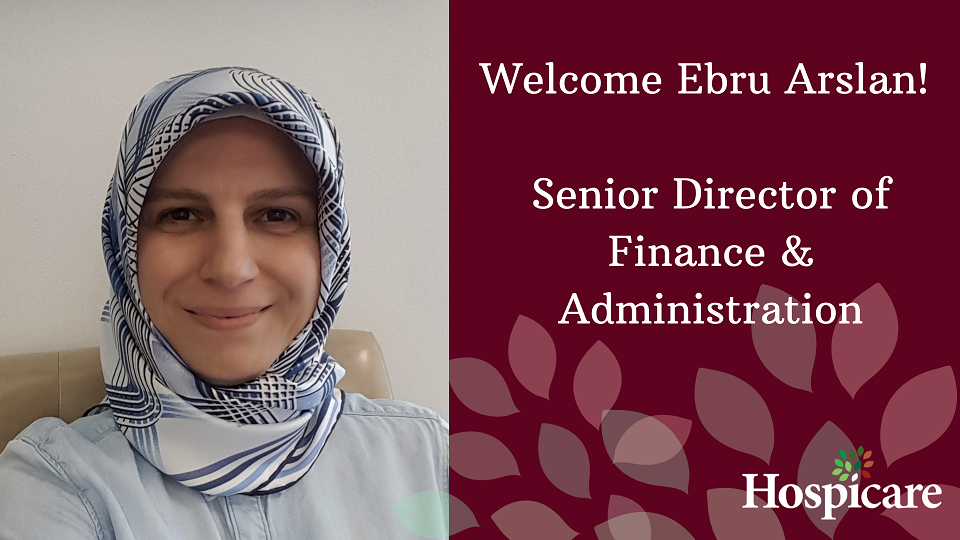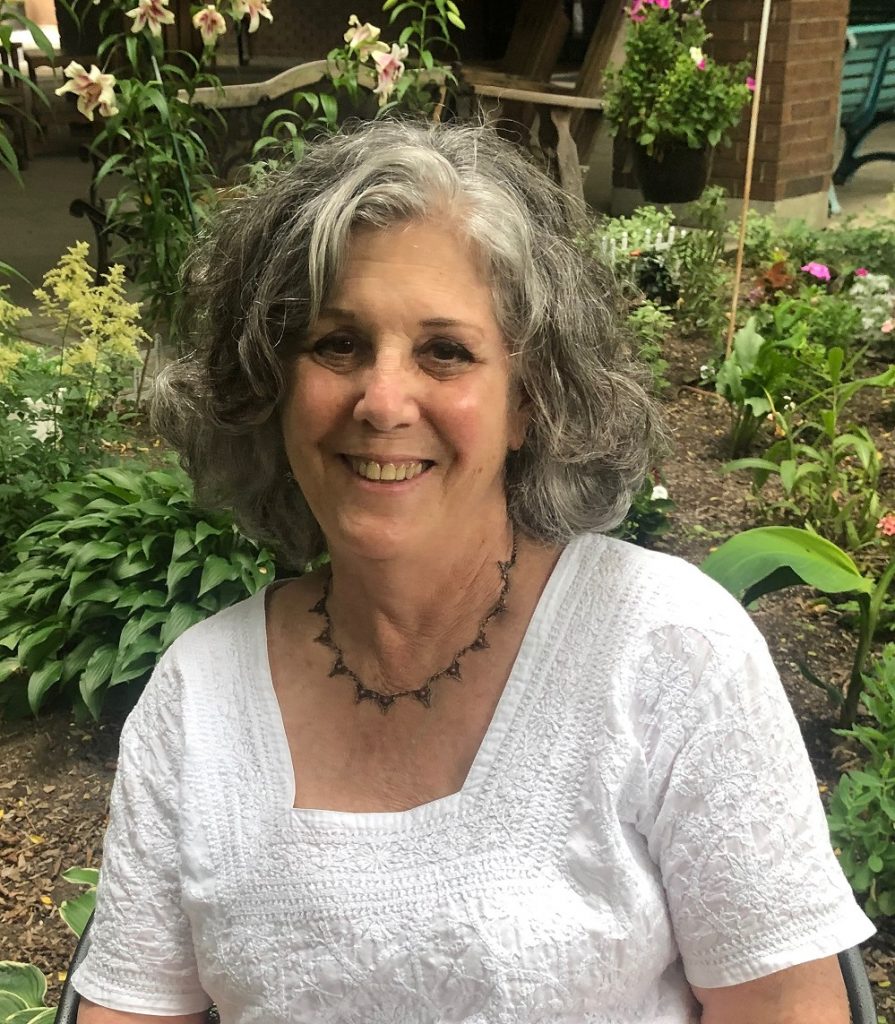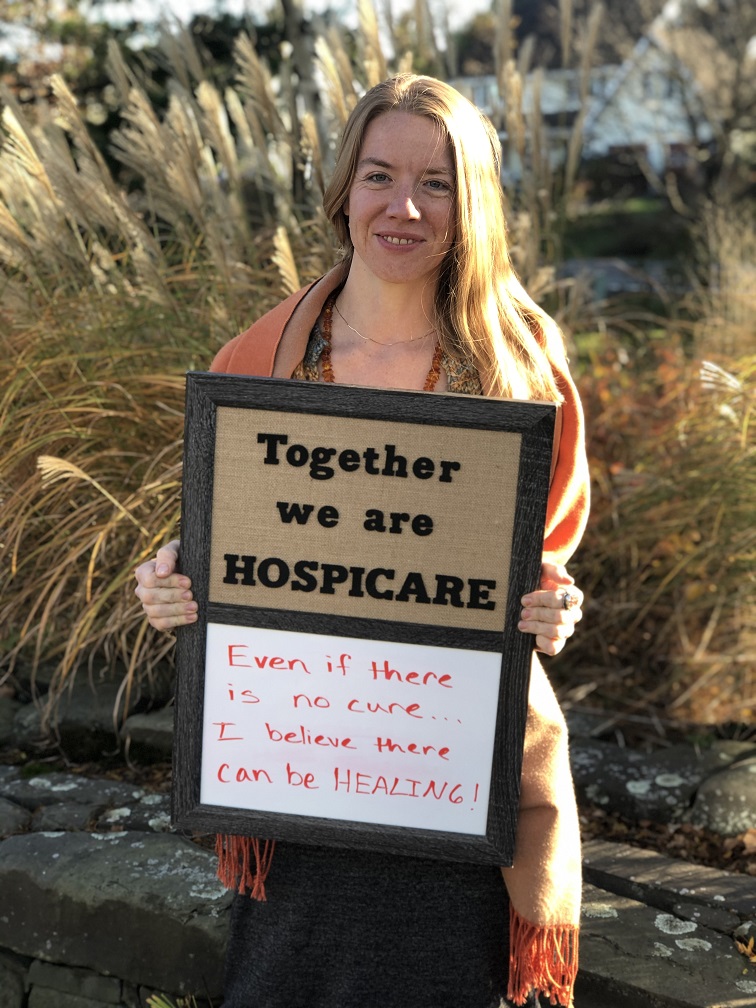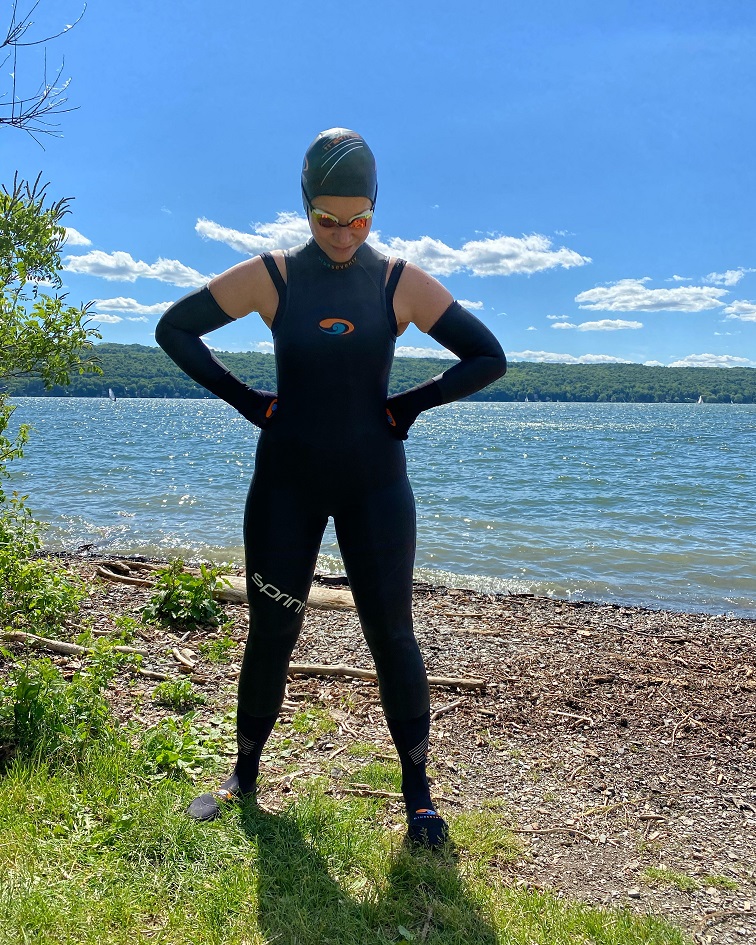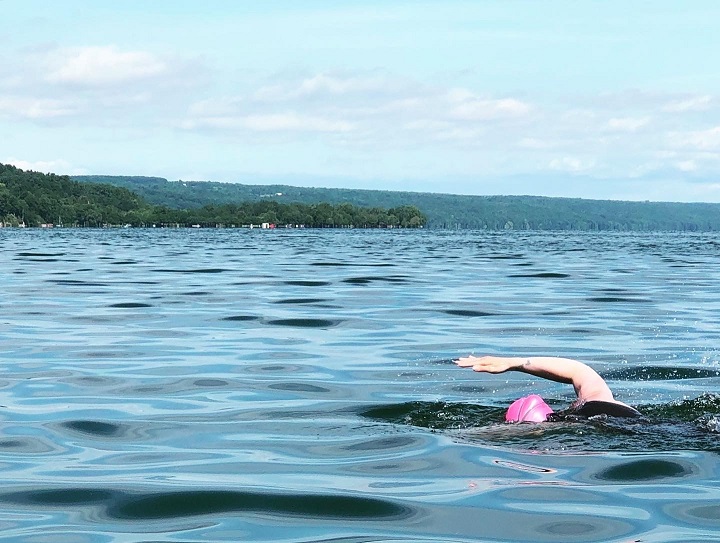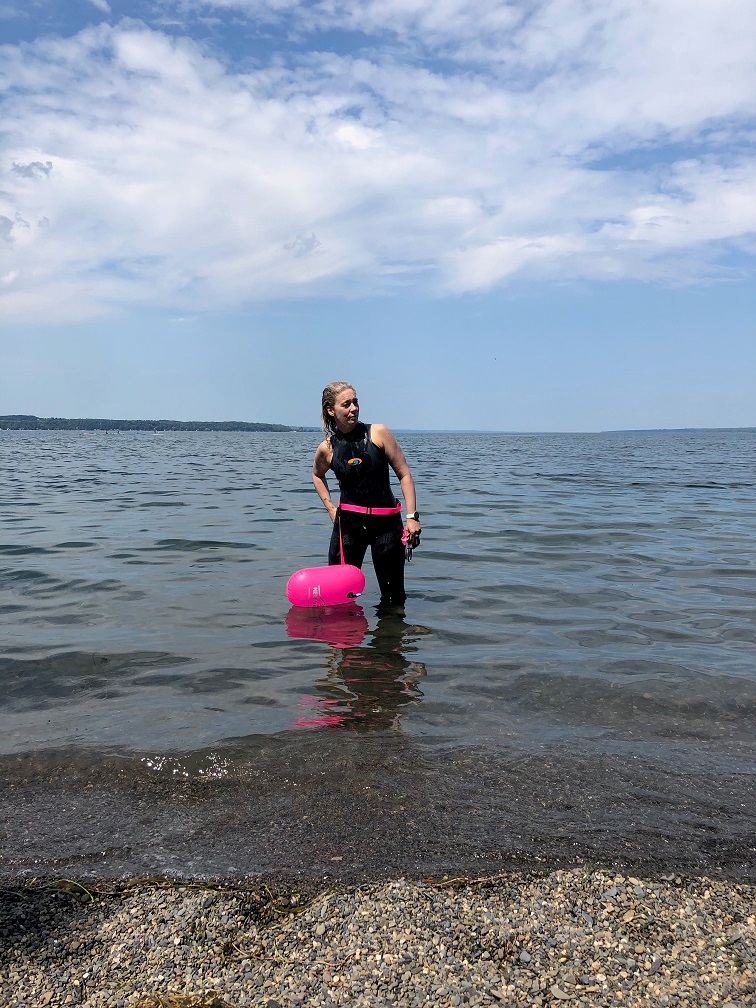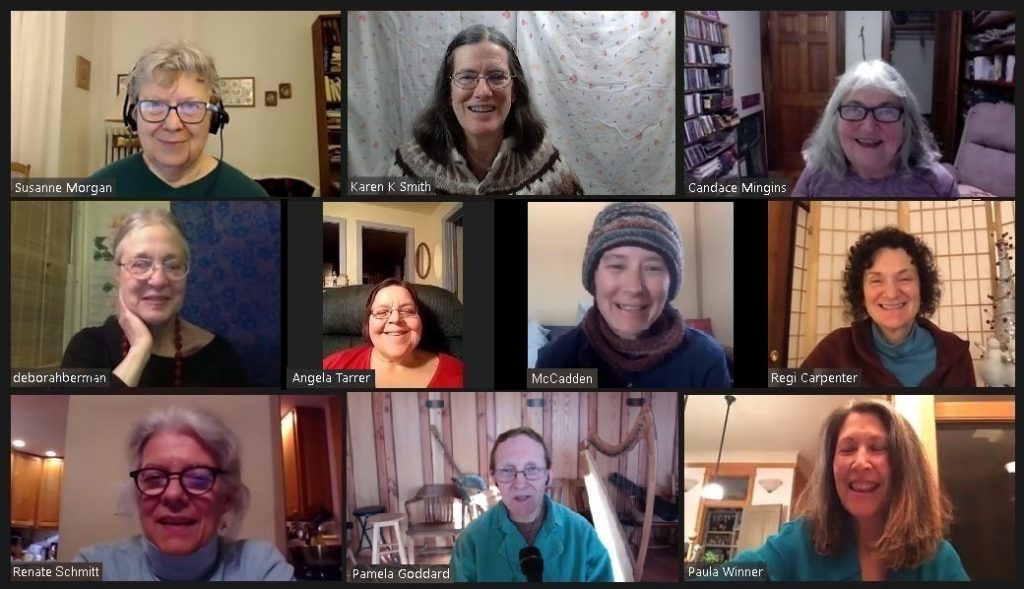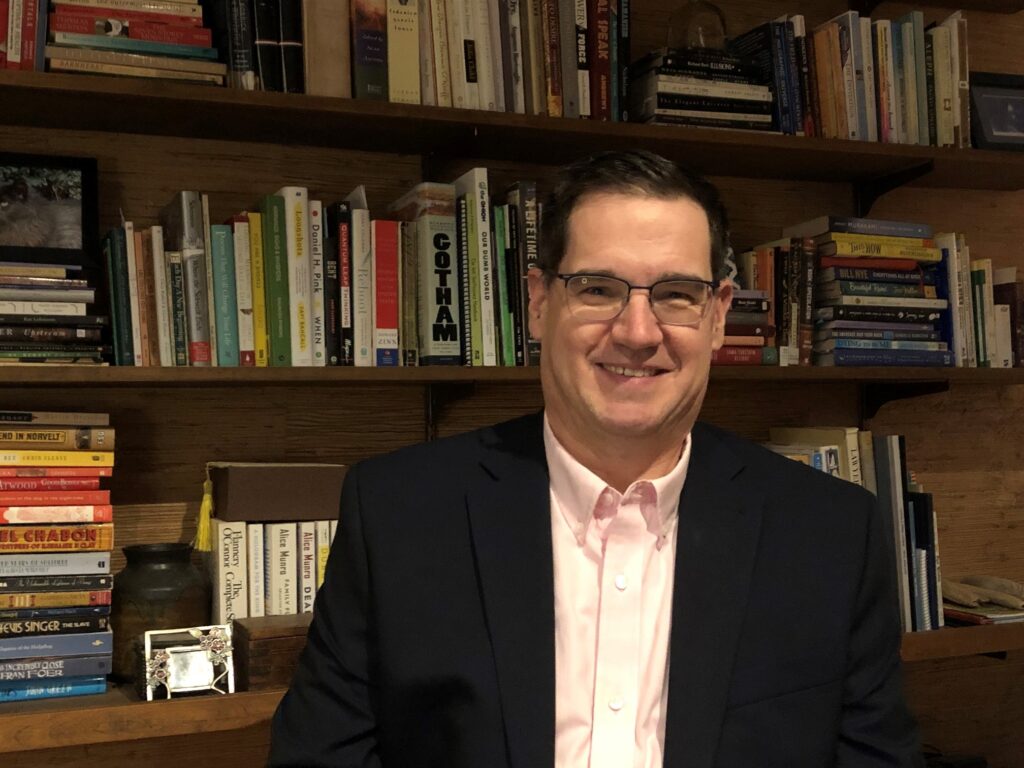A Special Blog Series in Honor of National Hospice and Palliative Care Month
This November, we are sharing a special blog series written by Hospicare staff in honor of National Hospice and Palliative Care Month. Each post will feature a different member of our staff as they share why they love the work they do. In part one of this series, we feature Kimmy Jones, RN and Clinical Team Leader.
Kimmy Jones, RN, Clinical Team Leader
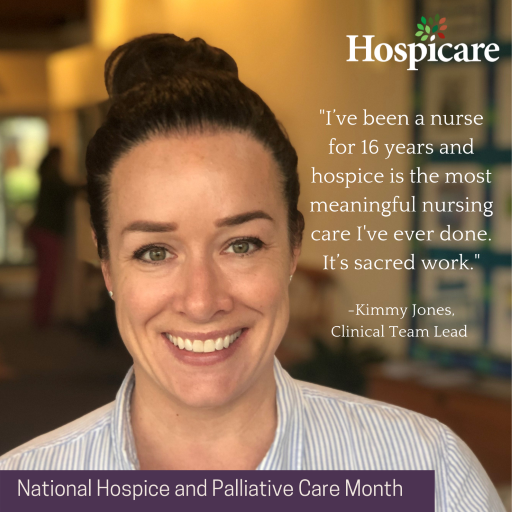
“Hello, I’m Kimmy. I’m the clinical team leader for Hospicare which means I supervise the primary nurses, LPNs, and home health aides in the field. Most of the patients we serve are in the field, living in a private home or a facility within Tomkins or Cortland counties. I’ve been an RN for 16 years and hospice work is the most meaningful nursing care I’ve ever done. It’s sacred work. I started my nursing career in the emergency department, then I worked in lactation education and breastfeeding/chest feeding support, and now I work in hospice.
I started here at Hospicare a little over three years ago as a primary nurse. After a year, I moved into the team leader position. This move just happened to take place right before the discovery of the Covid-19 virus. We have continued to serve the community and our patients throughout the entirety of the Covid-19 pandemic and to be diplomatic, it’s been quite a learning experience. The reason we have been successful during this time is our outstanding team of devoted staff members. Everyone has their heart focused on the mission to continue to care for our community, which has allowed us to forge through the uncertainty and ever-changing landscape of nursing care that has been brought on by this pandemic.
Hospice work can be very emotionally taxing. It can even be heartbreaking. But it’s some of the most rewarding and special work I’ve ever done. We are invited into people’s homes during a very sacred and intimate time, and it is such an honor. It feels fulfilling to be able to alleviate distress, whether that’s physical or emotional, and for the patient and family to trust us and look to us for guidance and reassurance. You’ll be hard pressed to find any healthcare worker who doesn’t find that rewarding.
When asked ‘What brought you to work in hospice?’, a lot of people have beautiful stories about a personal experience they had when a loved one received hospice. I don’t have a story like that. For me, it just felt good. It felt right.”
